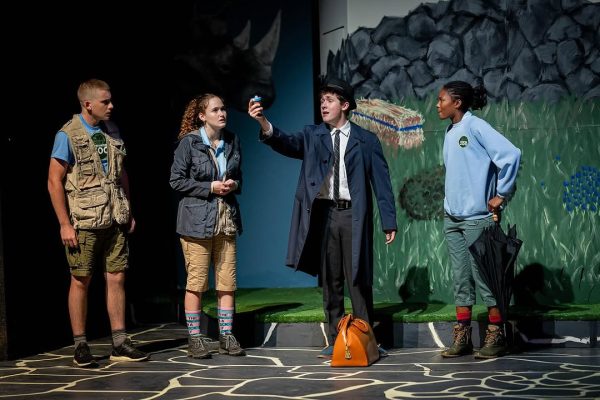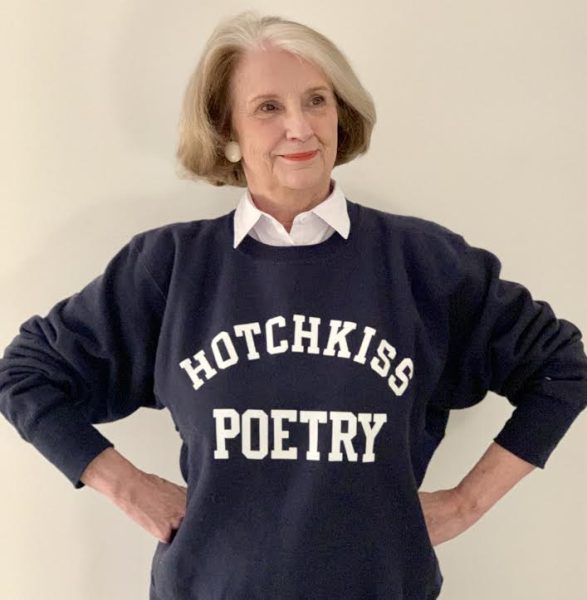HDA Centers Plays Around Social Issues
Do you wish you had a better grasp of the classics but find the cathartic tragedies of antiquity too disconnected from the problems and events of your everyday life?
The Hotchkiss Dramatic Association’s (HDA) 2021 winter production, “ΜΕΤΑΓΡΑΦΕΙΝ (rewrite)”, adapts Ancient Greek theatre to address contemporary issues related to the COVID-19 pandemic, the Black Lives Matter movement, recent environmental disasters, and economic instabilities.
Rehearsed and filmed on Zoom, the production features four plays, which will be released throughout the next two weeks as episodes in a series. HDA adapted and modernized the plays Prometheus Bound by Aeschylus, and Oedipus Rex, Oedipus at Colonus, and Antigone by Sophocles into four fifteen- to thirty-minute-long episodes, entitled Prometheus Doxed, Oedipus Noir, Oedipus in the Wild, and A v. C.
The plays explore environmental, economic, political, and racial issues. Mr. Derek Brashears, director of theatre, and the student directors, Felix Bao ’21, Luke Gardiner ’21, Kiki Henry ’22, and Keeilah Jewell ’22 worked to make Greek theatre relevant in a modern context. Gardiner said, “We still read these Greek plays today because a lot of the themes that are in them…family, passion, politics, [and] violence are still very relevant in our society today.”
For example, HDA’s adaptation of Sophocles’ Antigone addresses police brutality and racism in the context of the Black Lives Matter movement. In the play, Antigone aids a Black man who is a victim of police brutality to an ambulance against Police Chief Creon’s wishes. The play focuses on Creon’s interrogation of Antigone and explores the idea that laws are made by those in power to stay in power. Richie Mamam Nbiba ’23, who played Antigone, said, “Conversations around racial injustice at Hotchkiss are often minimized and downplayed to make it easier for non-POC students and faculty to digest. Our goal in Antigone was to do the opposite of that. We wanted Hotchkiss to face reality and acknowledge that racial injustice is not and should not be comfortable. It should be hard to talk about; it should be sad to hear about, but the point is that we have to work past our discomfort and be real.”
The production drew inspiration from the Netflix television series “Social Distance,” which depicted people’s lives during the COVID-19 pandemic using Zoom calls, FaceTime calls, security camera footage, and other forms of technology. Mr. Brashears said, “In the past year, a lot of Zoom theatre has been produced, but the scripts weren’t written for the [Zoom] format. I really like “Social Distance,” because the characters always knew they were talking to a camera. Every interaction between characters [was] written to be authentically remote.”
Students intend for the HDA winter production to stimulate reflection within the community as well as provide entertainment. Gardiner said, “Our goal is to create something that is entertaining, that people will enjoy watching, that makes them really think about the implications, themes, and messages of the piece. So it’s really that balance of creating something that people will enjoy and be invested in but also something that will make people think.”
The episodes will become available on March 24 on the HDA website.





